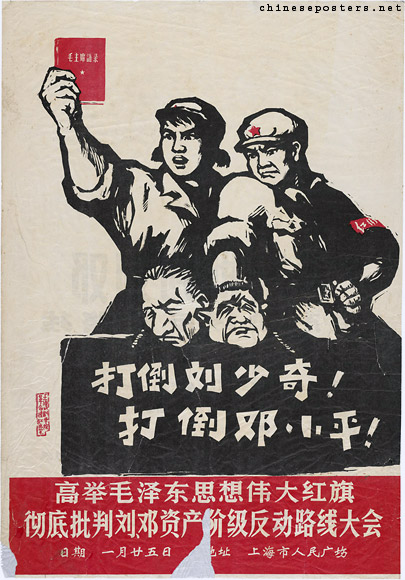With all the electrons displaced in analysis of our dear leader and his minions, I’ve seen nothing that presents a Confucian view. Confucianism, partly a guide to humane leadership, should have some advice for us right now.
Out of modesty and concern for the other, no learned Confucian would seek to point out how unfit, unwise, unprepared, and dangerous is our dear leader. I am certainly no Confucian scholar, so I can proceed. Confucianism, it seems to me, is a tool with which to expose some of our cultural stultification. Briefly, let’s see what we can learn – advice for leaders, advice on choosing leaders, and advice for all of us, all the time. The hyperlinks contain pertinent text.
Responsibilities of leaders
The Confucian concept of ren, which we usually translate as benevolence or humaneness, is characteristic of the ideal leader. A leader must be concerned with the general welfare of his people, and unconcerned with money, status, or power. A ruler who is more concerned with his own welfare than that of the people may be replaced, as Mencius told us.
The legendary Chinese emperor Shun is extolled because of his magnificence – his benevolence was so great, trust in him was so great, that all he had to do was sit facing south, and his ministers would cause the empire to run effectively and efficiently and peacefully. The great man inspires those around him to be great.
The way for a leader to become great – indeed, the way for any person – is to practice self-discipline, engage in study and learning for self-cultivation, and enlarge other people. Those concerned with bodily comfort and wealth are not great, the xiaoren, the little people, or, better, petty persons – small not in stature or number, but small in righteousness.
Responsibilities of all of us
In the Great Learning (one of the four Confucian classics) we learn that all people should work to gradually expand the sphere of self-cultivation, from early study and learning from parents, to having an orderly family, then participating in the governance of the state, and finally, bringing peace and enlightenment to the world. This remains a goal for all of us, even if bringing peace and enlightenment to the world is a bit above our personal pay grade.
Confucius’ ideas about goals for a human life are similar to those of Jesus and Aristotle, whether we call it self-cultivation, union with god, or flourishing – some form of “be the best person you can be in community.” None have making money, insulting people, lying, deceit, cheating, or debasing the sacred texts as virtues. Jesus and Confucius have some universal advice – from Jesus – humility, charity, brotherly love, and love your neighbor as yourself. From Confucius – in
Analects Yan Yuan 22, benevolence, education, and sincerity – Fan Chi asked about benevolence. The Master said, “It is to love all men.” He asked about knowledge. The Master said, “It is to know all men.”
And in Analects, Yong Ye 30, humility and charity – Now the man of perfect virtue, wishing to be established himself, seeks also to establish others; wishing to be enlarged himself, he seeks also to enlarge others. To be able to judge of others by what is nigh in ourselves – this may be called the art of virtue.
The Beatitudes are clearer, but similar moral instruction –
Blessed are the poor in spirit; Blessed are they who mourn; Blessed are the meek; Blessed are they who hunger and thirst for righteousness; Blessed are the merciful; Blessed are the pure of heart; Blessed are the peacemakers.
Not so many of us – particularly our leaders – are skilled at humility, charity, enlarging others, or assisting the poor, those who mourn, and those who seek righteousness. But for Confucians – as well as Christians – the moral imperative is there.
Where our leaders are now
Examples of Trump – and GOP – lying, mendacity, cruelty and mopery are available for all to see on a daily basis. Just one –
Fact-checking Trump’s attempt to erase his previous coronavirus response (CNN, April 1, 2020)
Ok, one more –
Adam Serwer – The Cruelty is the Point (Atlantic, October 3, 2018)
The Bible is a rich source of morality contrary to Trump’s tweets, words, and actions. Biblical advice on leadership is mostly confined to church leadership, as in 1 Timothy 3:1 and 2 Timothy 2:2. There is Mark 10:43-45– “But whoever would be great among you must be your servant, and whoever would be first among you must be slave of all which sounds quite a bit like advice from Mencius and Confucius. Mencius in 7.2. 60 (Jin Xin 2.60) – The people are most important, the nation second, the leader last. And from Analects Yan Yuan 19, If the leader strives for goodness, the people will follow him in being good.
For Confucians as well as Christians, the goal of government is to build a harmonious society, including a climate of virtue. Leaders should be role models. We don’t seem to have that right now.
How to understand where we are
Confucius tells us that political authority is a trust, conferred by heaven for the welfare of the people. And the greater the political power, the weightier the moral responsibility. Collectively, we elected Trump, some of us support GOP mendacity, and those are problems for a different article. In some sense, we deserve what we have. Even given that, how to understand our leader’s lack of public decency, of morality, of benevolence?
Mencius told us about growing in ren, in humaneness. Those humane virtues are what sets humans apart from animals. One should be virtuous to be a genuine or non-defective human being. In 2A.6 Gong Sun Chou 1, he tells us that without the feeling of commiseration, one is not a human; without the feeling of shame and dislike, one is not a human; without feeling of modesty and complaisance, one is not a human; and without the feeling of right and wrong, one is not a human. Mencius in 4B Li Lou 2.47 –
That whereby man differs from the lower animals is but small. The mass of people cast it away, while superior men preserve it. Shun clearly understood the multitude of things, and closely observed the relations of humanity. He walked along the path of benevolence and righteousness; he did not need to pursue benevolence and righteousness.
Humanity, righteousness, propriety, and wisdom constitute the virtues one ought to have in order to be a non-defective human being. These virtues are not inborn. They must be cultivated, nurtured, and demonstrated to separate humans from beasts.
We recognize that we are all on different paths to self-completion (mirroring Augustine). When one is faced with inhumanity, one has an obligation to do self-reflection before reacting. What sort of person are we dealing with? In Mencius 4B:56 Li Lou 2 –
Suppose a man treats one in an outrageous manner. Faced with this, a gentleman will say to himself, “I must be lacking in humaneness and propriety, or else how could such a thing happen to me?” When, looking into himself, he finds he has been humane and proper, and yet this outrageous treatment continues, then the gentleman will say to himself, “I must have failed to do my best for him.” When, on looking into himself, he finds he has done his best and yet this outrageous treatment continues, then the gentleman will say, “This man does not know what he is doing. Such a person is no different from an animal. One cannot expect an animal to know better.”
A Confucian notion of human equality is predicated on every individual having equal dignity. Each person has the potential – and obligation – to cultivate knowledge, self-awareness, and benevolence. Confucians refer to this as self-cultivation. Humans have these abilities. Animals do not.
Some humans do not achieve a minimum level of self-cultivation. Frank Bruni at the New York Times went looking for Trump’s soul – he might well have included the GOP as well – and noted that George W. Bush reassured us and Barack Obama fought back tears when consoling the nation about national tragedy. Bruni asked rhetorically, “Do you remember the moment when President Trump’s bearing and words made clear that he grasped not only the magnitude of this rapidly metastasizing pandemic but also our terror in the face of it?” Bruni concludes that failures in this regard are more than a failure of empathy, or a failure of decency. It’s a failure of basic humanity.
Confucians tell us that rulers should be junzi – not egocentric or power hungry, but superior practitioners of morality and authoritative but modest leaders to a better future. Make America Great Again is baldly egocentric – Trump sells the hats – and the future is manifestly worse for all. A superior practitioner of morality, he is not. He does not demonstrate the qualities that make one human.
What is to be done?
In the US, we don’t expect leaders to be junzi. We can scarcely have lower expectations than what we seem to produce now for leaders. But now with a Confucian perspective, we can at least answer the question of why our dear leader acts as he does.
In Analects Xian Wen 34 Confucius told us to repay injury with righteousness- that is, justice. Someone behaving badly is in need of correction, and we have an obligation to attempt that. After all, the goal of self-cultivation is to improve others as well as oneself. Trump – and evidently, many of his followers – were reared without good moral training from parents and examples from relatives, friends, colleagues and government. Mencius tells us that humans are born good, and with cultivation may become excellent. Even individuals whose actions indicate serious human deficiency have the potential for growth. We should encourage all politicians to engage in self-cultivation so they might develop virtuous behavior and become people of integrity instead of opportunists.
Let us return Trump to his self-promotion business, where he can be the master of all to his own satisfaction and not harm so many of us. Those who wish to deal with him may do so. In the meantime, we should instruct Trump and toadies in elemental humaneness – call it Confucian or Christian. To do otherwise makes us accomplices in tolerating someone who, to all appearances, is less than fully human.





Move along. Nothing to see here. La la la
Every now and then some people in the US get excited and worried about Chinese gains in science, technology, engineering and STEM education – that China is beating the US in the critical tech race to the future. The comforting reaction is always on the order of, “Yes, but. We have freedom of thought and speech and eventually the authoritarian regime will self-destruct. And we will always lead in DEI technology.”
Now comes The Australian Strategic Policy Institute (ASPI), a credible independent think-tank. One of its recent projects has been to investigate the state of research in 44 critical technologies around the world.
Results are in their Critical Technology Tracker report https://www.aspi.org.au/report/critical-technology-tracker.
From an Al Jazeera news report on the ASPI study –
China leads the world in 37 out of 44 critical technologies, with Western democracies falling behind in the race for scientific and research breakthroughs, a report by an Australian think tank has found.
China is in a position to become the world’s top technology superpower, with its dominance already spanning defence, space, robotics, energy, the environment, biotechnology, artificial intelligence (AI), advanced materials and key quantum technology, according to the report by the Australian Strategic Policy Institute (ASPI).
The key areas dominated by China include drones, machine learning, electric batteries, nuclear energy, photovoltaics, quantum sensors and critical minerals extraction, according to the Critical Technology Tracker released on Thursday.
China’s dominance in some fields is so entrenched that all of the world’s top 10 leading research institutions for certain technologies are located in the country, according to ASPI.
In comparison, the United States leads in just seven critical technologies, including space launch systems and quantum computing, according to ASPI, which receives funding from the Australian, United Kingdom and US governments, as well as private sector sources including the defence and tech industries.
The UK and India are among the top five countries in 29 of the 44 technologies, with South Korea and Germany making the top five in 20 and 17 technologies, respectively, the report said.
You can read the ASPI report yourself. Link above.
Figures below are the ASPI assessment on the 44 technologies.
One can quibble with their assessment of dominance and future monopoly risk. But the overall assessment is pretty clear. Apologies on the poor quality of the images.